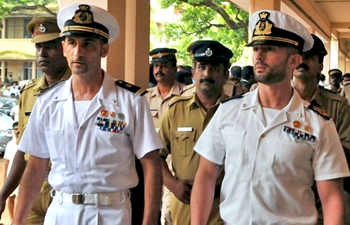New Delhi, Jun 25: After the Drug Controller General of India (DCGI) given its approval to manufacture and market the generic version of COVID-19 drug Remdesivir, COVIFOR, Hyderabad-based drugmaker Hetero Limited has delivered the first set of 20,000 vials in two equal lots of 10,000 each across 5 states.
The first batch, which is being marketed under the brand name of COVIFOR, was delivered to Maharashtra, Delhi, Gujarat Tamil Nadu and Hyderabad. Hetero has set a target to produce one lakh vials of the drug in two-three weeks.
The other lot would be supplied to Kolkata, Indore, Bhopal, Lucknow, Patna, Bhubaneshwar, Ranchi, Vijayawada, Cochin, Trivandrum and Goa within a week to meet the emergency requirements.
Managing director of Hetero Healthcare M Srinivasa Reddy said “the launch of Covifor in the country is a milestone in addressing public health emergencies. Through Covifor, we hope to reduce the treatment time of a patient in a hospital thereby reducing the increasing pressure on the medical infrastructure overburdened ue to accelerating COVID-19 infection rates," he said as reported by news agency.
"We are closely working with the government and the medical community to make Covifor quickly accessible to both public and private healthcare settings across the country”, Reddy said.
Covifor is a generic brand of Remdesivir which is used for the treatment of COVID-19 in adults and children hospitalised with strong symptoms of the disease. The Health Ministry had, on June 13, recommended the use of anti-viral drug Remdesivir in moderate stage of COVID-19.
Dr Reddys Laboratories and Hetero are among others which have separately entered into non-exclusive licensing agreements with the original drug-maker Gilead Sciences Inc to register, make and sell the investigational drug Remdesivir in India and other countries.
Remdesivir would be made in the company's formulation facility in Hyderabad, which has been approved by global regulatory authorities such as US Food and Drug Administration (USFDA) and EU, among others, Hetero had earlier said.
The treatment first showed improvement in trials on coronavirus patients and was approved for emergency use in severely ill patients in the United States and South Korea.
 : The Supreme Court Friday permitted Italian marine Massimilano Latorre to go back home to Italy for his treatment for four months.The apex court bench headed by Chief Justice R.M. Lodha said the order would be effective only after the Italian marine has filed an "unequivocal and unambigous undertaking" on his return to India upon the completion of four months.
: The Supreme Court Friday permitted Italian marine Massimilano Latorre to go back home to Italy for his treatment for four months.The apex court bench headed by Chief Justice R.M. Lodha said the order would be effective only after the Italian marine has filed an "unequivocal and unambigous undertaking" on his return to India upon the completion of four months.




Comments
Add new comment